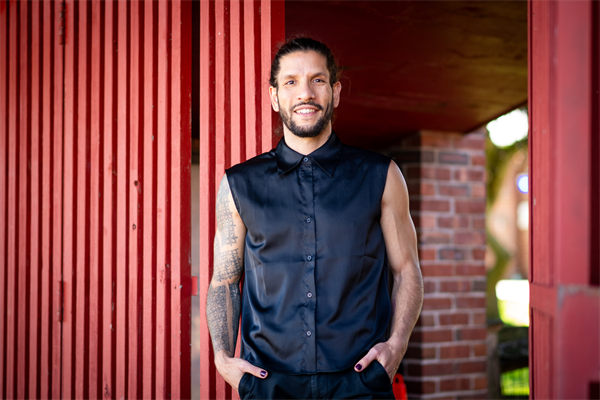
Fernando Salinas-Quiroz

Research/Areas of Interest
My research centers trans and nonbinary children and youth, focusing on how they imagine, inhabit, and transform gender, family, and belonging. I work alongside young people to challenge the rigid binaries that limit their lives, and I see research as a space for co-creation, joy, and justice.
Through transdisciplinary approaches, I seek to expand our understanding of change—not as a fixed "path of development," but as the complex, shifting, and plural ways children and communities grow. At the core, my scholarship asks how we can build worlds where trans and queer youth not only exist, but thrive.
Education
- Ph.D., Universidad Nacional Autónoma de México, Ciudad Universitaria, Mexico, 2014
- Postgraduate Diploma in Parent-Infant Psychotherapy, Mexican Psychoanalytic Association's Postgraduate Center (CEP-APM)/Women and Psychoanalysis Committe, Mexico City, Mexico, 2011
- M.A., Mexican Psychoanalytic Association's Postgraduate Center (CEP-APM), Mexico, Mexico, 2010
- Postgraduate Diploma in Parentality, Mexican Psychoanalytic Association's Postgraduate Center (CEP-APM)/Women and Psychoanalysis Committe, Mexico City, Mexico, 2009
- B.A., Universidad Iberoamericana, Mexico City, Mexico, 2008
Biography
I am trans, genderfluid, and femme—identities that both ground me and push me to question the world around me. Rooted in Marlene Wayar's being in gerund and the furia and ternura travesti voiced by Susy Shock, Lohana Berkins, and Claudia Rodríguez, I approach research, teaching, and community work as practices of transformation: fierce in resisting erasure, tender in sustaining life.
As a queer Mexican immigrant, I carry both privilege and marginalization, moving through languages, cultures, and borders while navigating belonging and unbelonging. My scholarship centers the lives of trans and nonbinary youth, challenging rigid binaries of gender, family, and development. I see this work as co-creation—building spaces where racialized and queer lives can flourish, and where radical hope fuels transformation.
At Tufts, I teach and mentor with the aim of sparking curiosity and connection. I strive to create classrooms that affirm students' whole selves while unsettling the assumptions that limit our collective imagination. Above all, I resist being reduced to a spokesperson for any single identity. I am just Professor Fer—human plurality in motion, still becoming.
As a queer Mexican immigrant, I carry both privilege and marginalization, moving through languages, cultures, and borders while navigating belonging and unbelonging. My scholarship centers the lives of trans and nonbinary youth, challenging rigid binaries of gender, family, and development. I see this work as co-creation—building spaces where racialized and queer lives can flourish, and where radical hope fuels transformation.
At Tufts, I teach and mentor with the aim of sparking curiosity and connection. I strive to create classrooms that affirm students' whole selves while unsettling the assumptions that limit our collective imagination. Above all, I resist being reduced to a spokesperson for any single identity. I am just Professor Fer—human plurality in motion, still becoming.